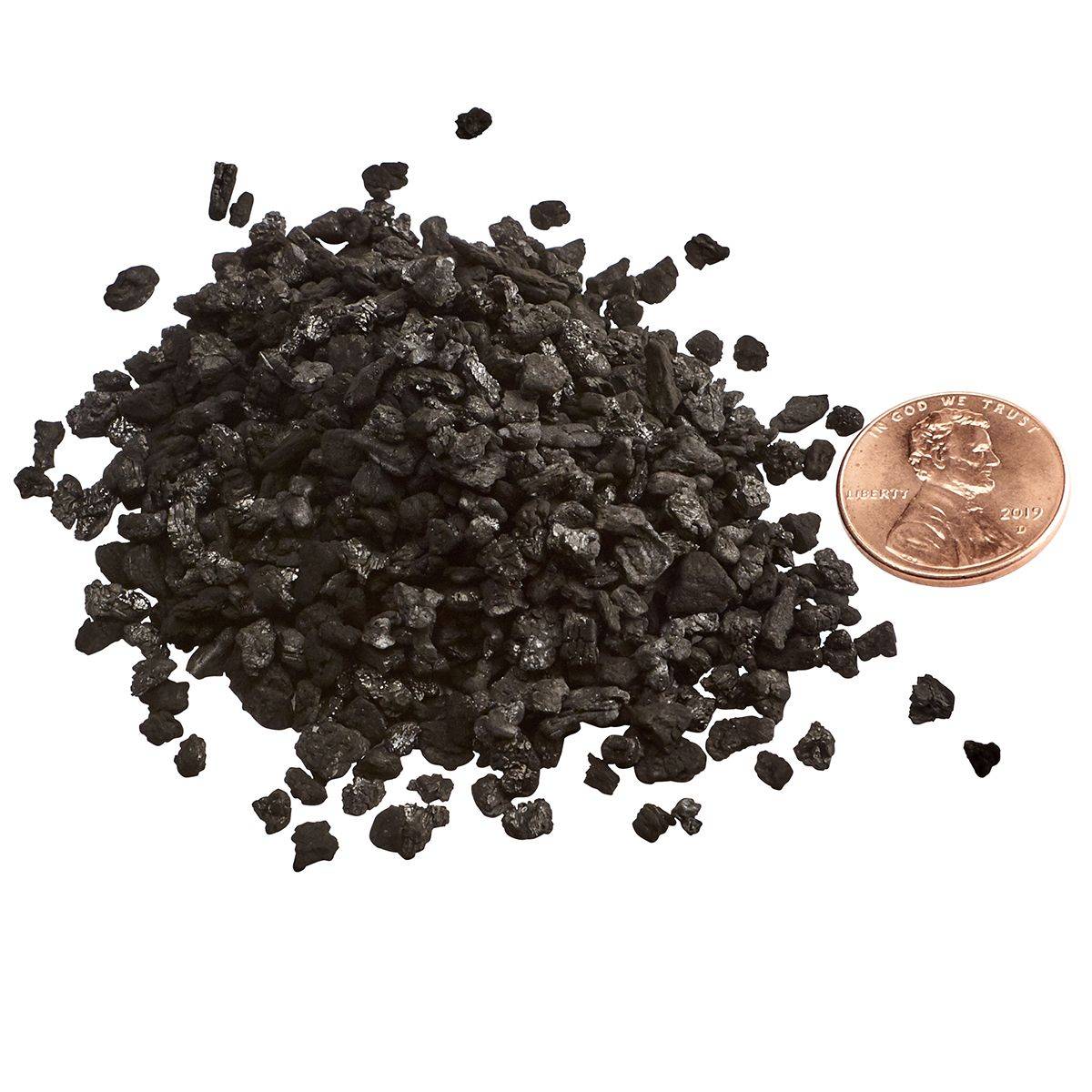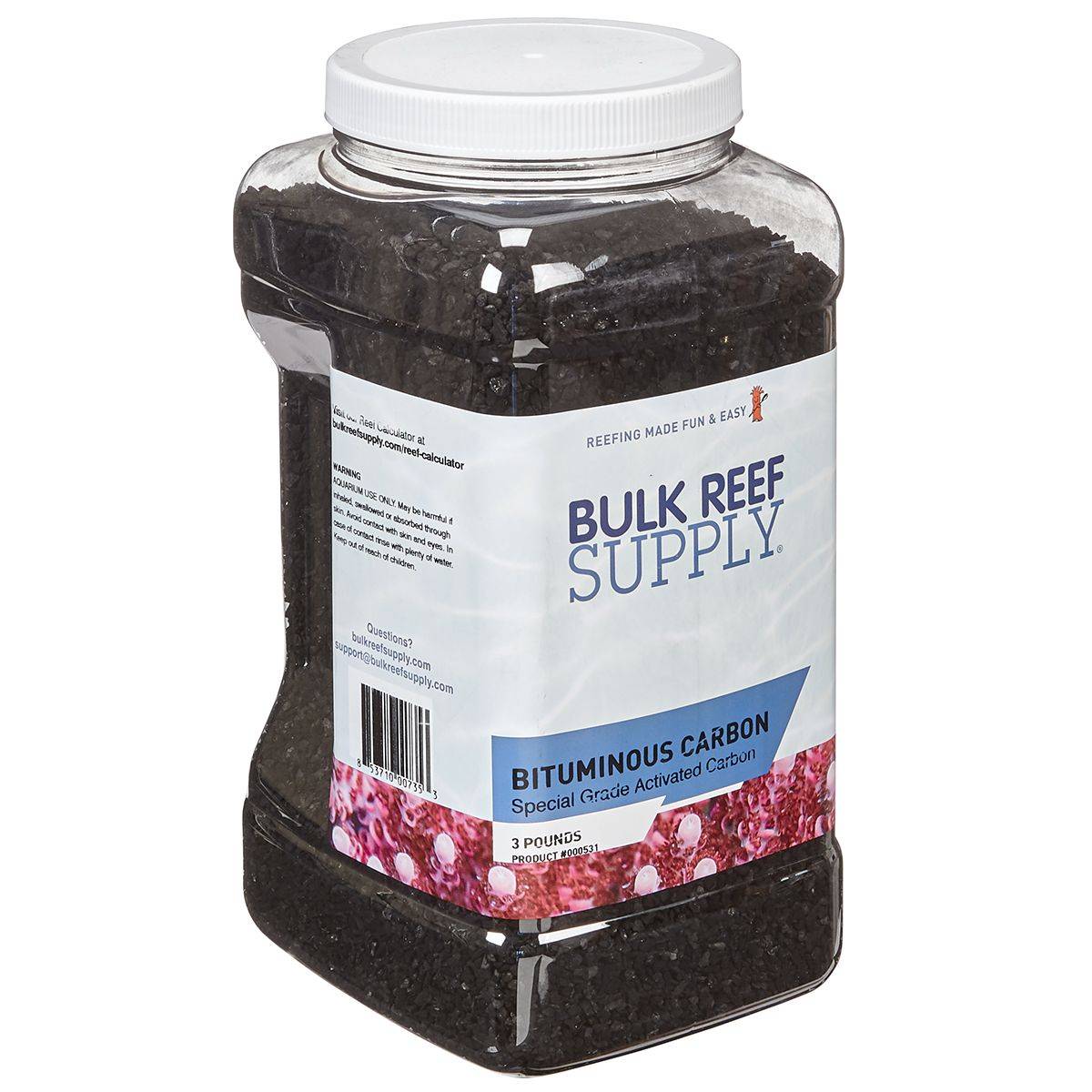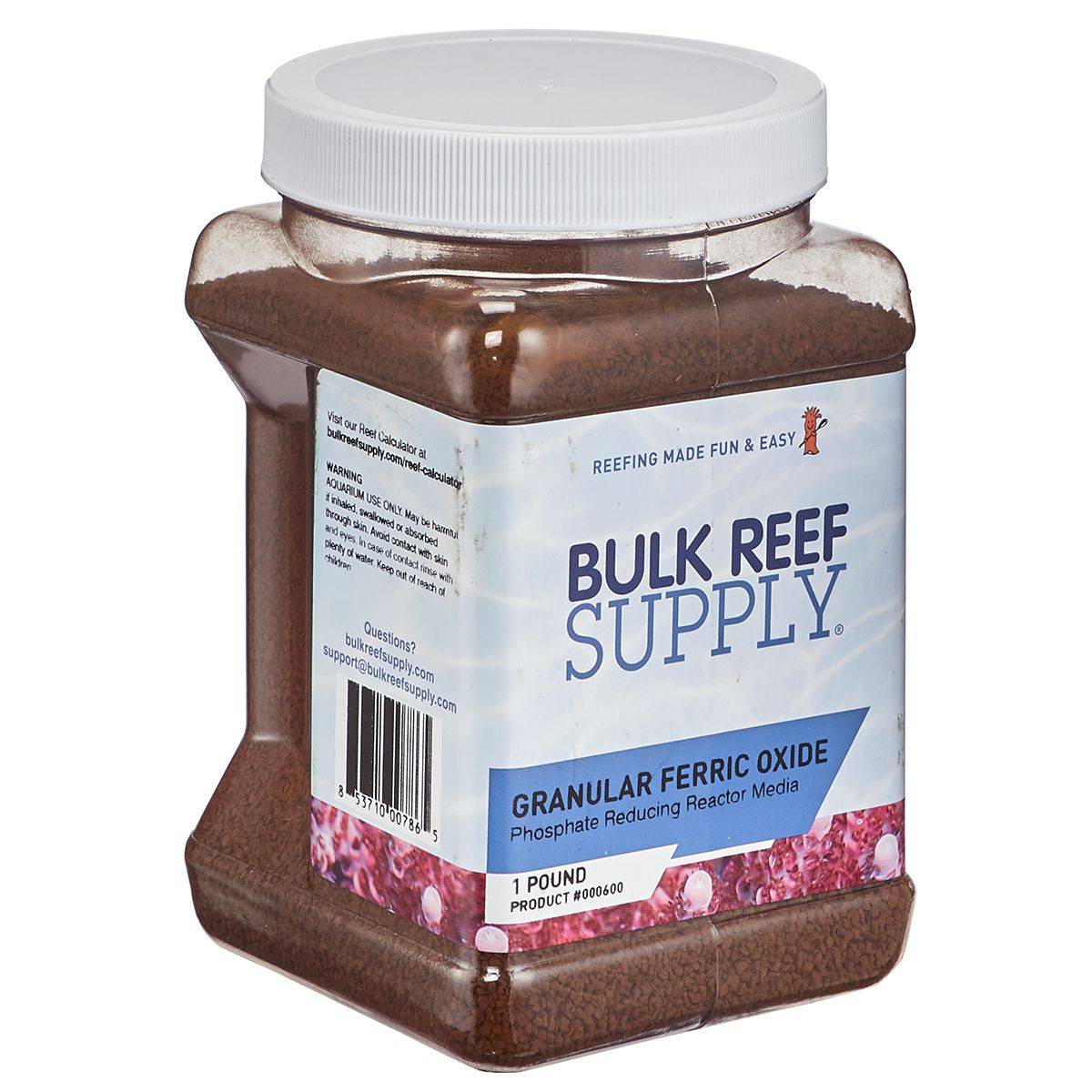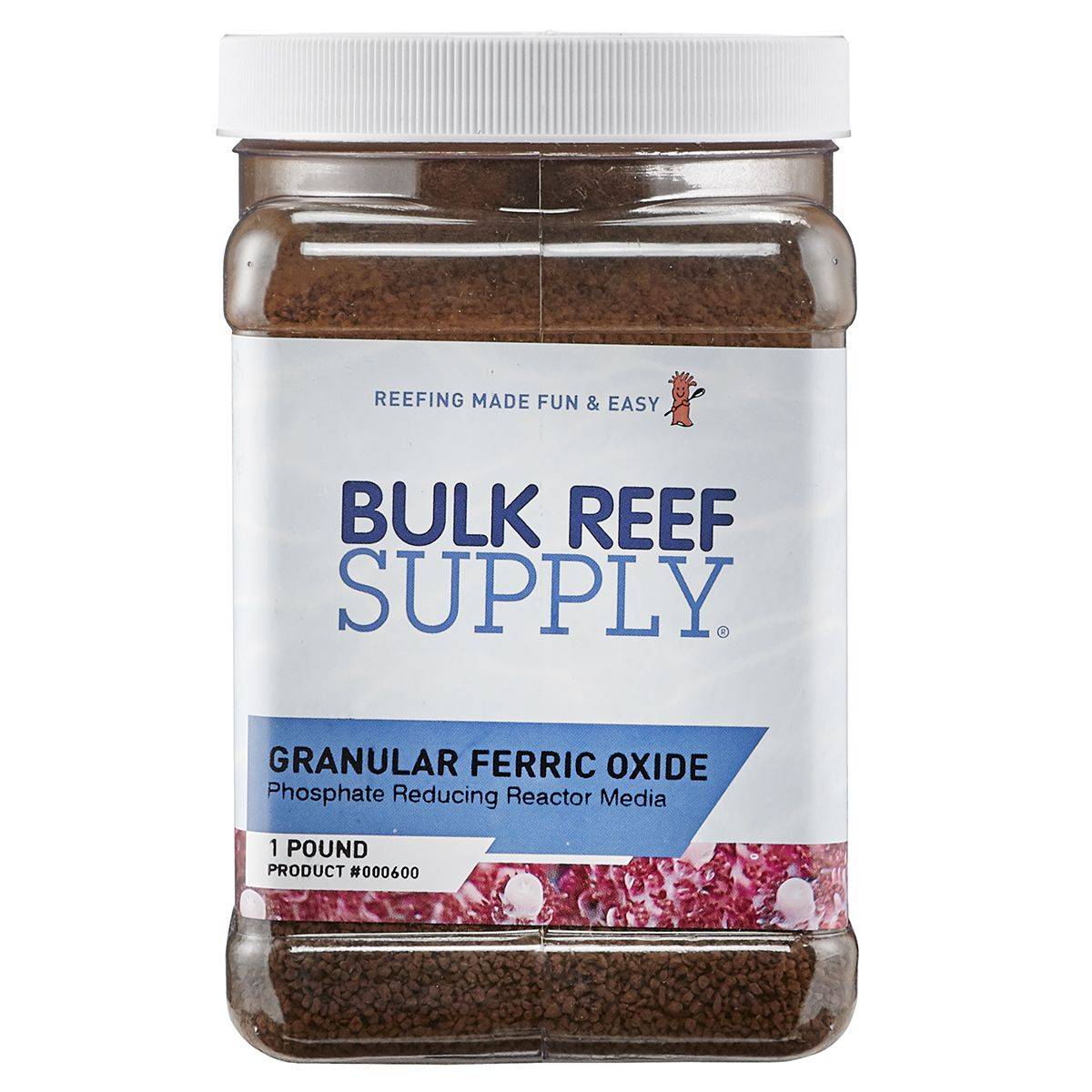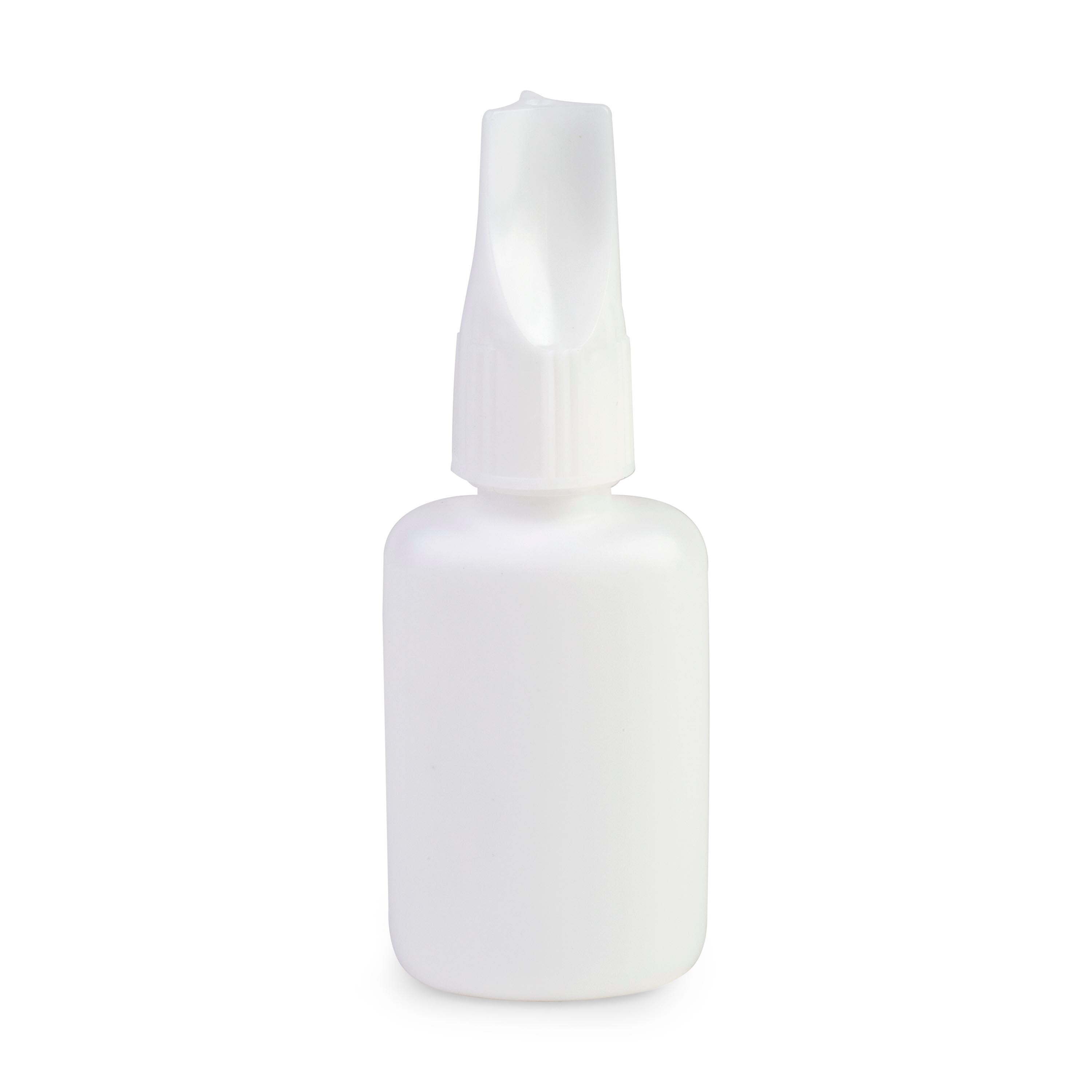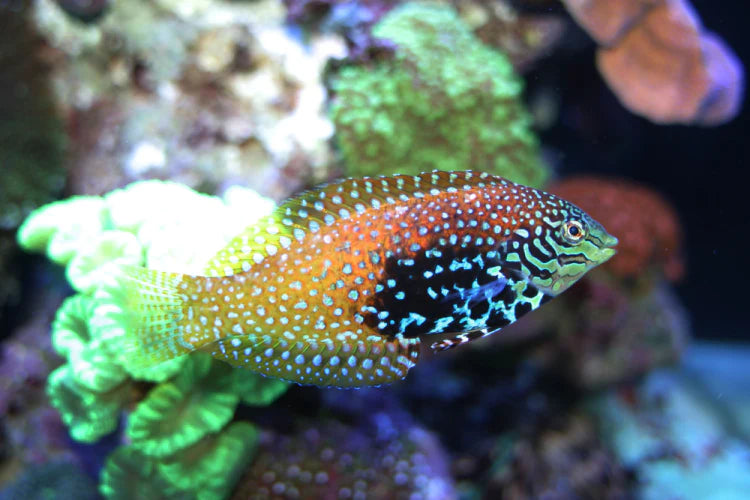
Vermiculate Leopard Wrasse Female (Macropharyngodon bipartitus)
Max Size: 5 inches
Diet: Carnivore
Temperament: Peaceful
Reef Compatible: Yes
Minimum Tank Size: 50 gallons
The Vermiculite Wrasse, also known as the Blue Star Leopard Wrasse or Divided Wrasse, displays a striking color pattern. Female or juvenile specimens feature a pearly white body adorned with a mix of oranges, yellows, and browns, embellished with light blue spots distributed throughout the pattern. They also possess a large blue to black spot on their stomach. In contrast, the males exhibit a vibrant neon green and blue coloration with black outlines, forming a broken striped pattern along their bodies.
Like other members of the Macropharyngodon genus, these fish require a fine sandy substrate in their aquarium as they bury themselves at night for protection. They have a natural inclination to hunt for small crustaceans during the day.
Leopard Wrasse present a challenge when it comes to acclimating them to a captive environment. However, under the care of experienced reef aquarists who can provide the necessary care and environment, they can thrive and create a stunning display. It is advisable to introduce Leopard Wrasse to the display aquarium well in advance of introducing larger or more active fish, allowing them ample time to acclimate and adapt to their new surroundings and establish a feeding routine. If maintaining a small group of these fish, simultaneous introduction into the display tank is ideal. Similar to other Labroids, these fish possess the ability to change their sex, with the most dominant fish in the group transitioning into a fully functioning male.
This unique wrasse species is typically found along the East African coast in the Western Indian Ocean. The healthiest specimens originate from the Maldives, as it is the only region from which we offer the Blue Star Leopard Wrasse.
To maintain a balanced diet, the Vermiculite Wrasse should be provided with vitamin-enriched frozen mysis shrimp, vitamin-enriched frozen brine shrimp, and other meaty foods. It is also recommended to supplement their diet with high-quality marine flake and marine pellet food.


